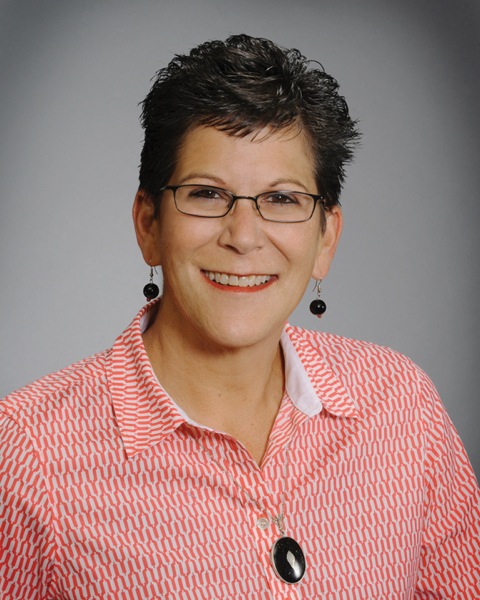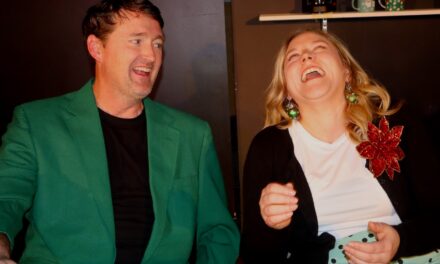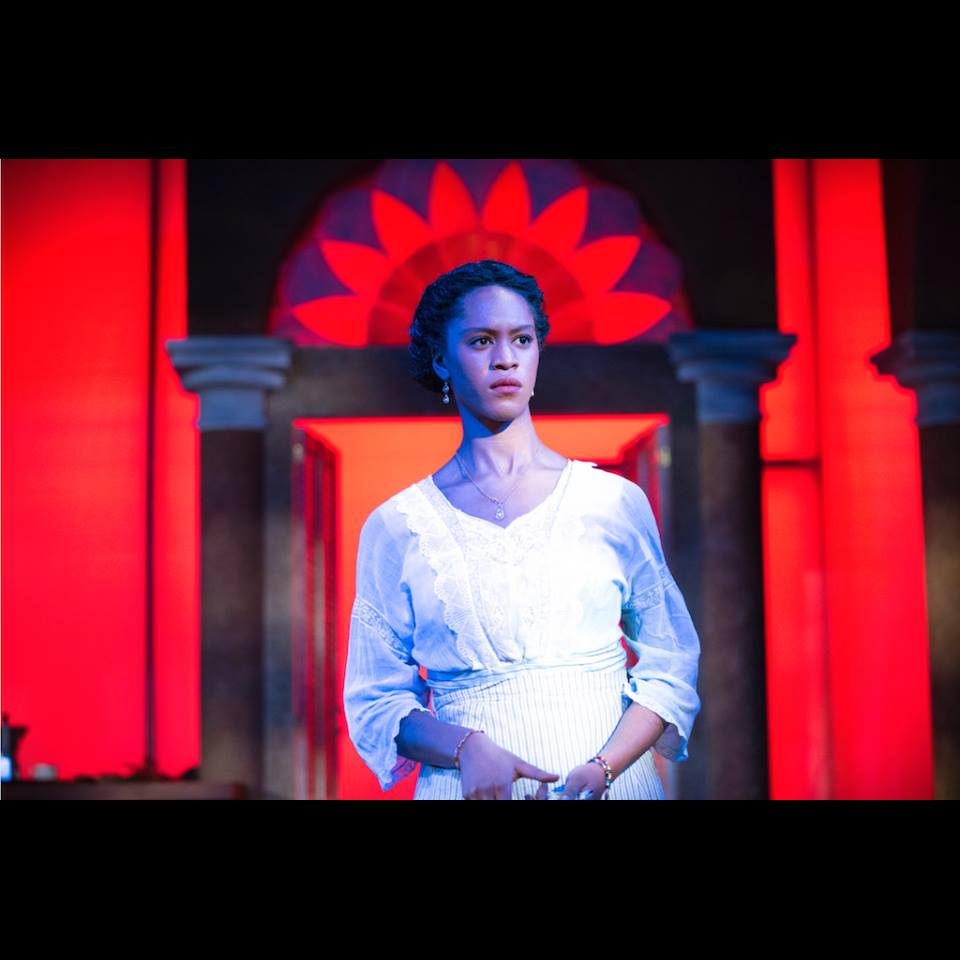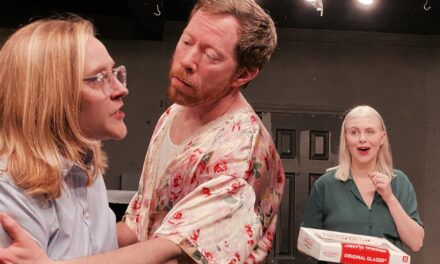Leslie Broecker.Photo courtesy Broadway in Louisville
Interview with Leslie K. Broecker
PNC Broadway in Louisville
By Scott Dowd
Entire contents copyright © 2015 Fearless Designs. All rights reserved.
Whether or not you are here to see a Broadway show or another performance, a part of your evening’s experience is made possible by the strength of PNC Broadway in Louisville. Across the country, venues like The Kentucky Center rely on a strong Broadway Series to provide the income needed to produce and present classic art forms, keep the lights on and fix the roof. Louisville is home to one of the most powerful and most popular Broadway Series in the country. This year, in fact, the company broke all previous records for subscription sales! I sat down with Leslie Broecker to talk about what PNC Broadway in Louisville’s success means both locally and nationally. Leslie serves not only as the President of the Louisville series, she is also President of the Midwest Region for Broadway Across America. Her current position is the culmination of more than twenty-five years of presenting professional Broadway productions. During those years, she has received numerous accolades for her innovative approach to the industry. She was among the first recipients of the “Road Marketing Award”—presented to her by Broadway icon Carol Channing! She has recently joined her father, Brad Broecker, founder of the Broadway Series Management Group and longtime president of the Louisville Theatrical Association (LTA), as a member of the small and prestigious cadre of Tony Award voters.
Scott Dowd: Twenty-five years is a lot of shows!
Leslie Broecker: I feel so fortunate to have gotten into the business when I did—back in the days of Tommy Tune and Busker’s Alley. If I had to choose one of the highlights, that would be it: sitting with the famous Sherman brothers who wrote the music for that show and so many Disney classics.
SD: They are actually characters in the film, Saving Mr. Banks.
LB: Sure. They wrote the music for Mary Poppins, Chitty-Chitty Bang, Bang and so many others. The Kentucky Revenue Board has recently added a clause to attract films and Broadway show development. I hope we will see more of that here in the future.
SD: The Louisville Theatrical Association has a long history of support for the community beyond presenting Broadway shows. PNC Broadway in Louisville is actually a partner of LTA.
LB: Right, that is part of our history. Back in the ’70s, the LTA ran what is now the Brown Theatre (nee Macauley). They served as management, raised money and provided the economic support needed to keep it afloat. That segued into support for The Kentucky Center in the early ’80s. In fact, the LTA board of directors was recently approached to redo the kiosks at The Kentucky Center.
SD: Those are the vertical signs in front of The Center to promote upcoming shows?
LB: Yes. We have been asked to convert them from the old-fashioned, but beautiful, printed three-sheets to digital screens.
SD: How long will that take?
LB: This fall, at the latest. The infrastructure is already in place. We are just waiting for the screens, which are being fabricated. The whole block is going to look really cool.
SD: That will be a big savings for The Kentucky Center and all the arts groups—printing those three-sheets is not cheap.
LB: They are not cheap and they can only be used once.
SD: Broadway has always been an economic engine for the arts community.
LB: A successful series should be able to help the facility and other arts groups by keeping rents manageable, maintaining the facility’s infrastructure and plant, while also making improvements to the venue. Kentucky Center gets only five percent of its income from the state and is required to earn the rest. We enjoy working with them to make sure that it is a great experience for everyone who comes for a show or event. And that’s typical of Broadway presenters across the country. What I think is unique about Louisville is our education program. Most of them don’t have the depth of ours. To me, it just makes sense because you’re creating new audiences.
SD: What types of things have you done?
LB: When Cinderella was here, we gave two tickets to each second and third grader at Lincoln Elementary. We gave them two so that they could bring a parent or guardian. When they go home, the experience then has longer life. If you go home and have no one to talk to, the experience fades quickly. Our hope is that this shared experience will last a lifetime. We have developed a strong partnership with Lincoln. When War Horse was here a few years ago, even though the subject matter was too much for that age group, we were able to do a puppet workshop with the students. The cast took butcher paper and duct tape and created life-size human puppets, then demonstrated how to make inanimate objects come to life. They showed the kids how to make them “breathe.” I am still very jazzed by watching little people experience theatre.
SD: And older people…?
LB: Yeah, we had a lady who came to see The Lion King the night of the blizzard who hadn’t been out of the house in seven years. TARC brought her in her wheelchair and she wound up waiting at the theatre until about one in the morning until they could get back to pick her up. You would think that she would have been sorry about coming out, but when we talked to her about the show and the whole experience, she said it made her feel good about herself for having persevered and succeeding. As much as it is a business—and a big business—it still becomes about those intimate, personal experiences.
SD: I guess it is a big business in terms of impact, revenues, employment, etc. How have things changed over the years?
LB: Tours used to sometimes fall apart and we would be scrambling for a replacement show—that almost never happens anymore.
SD: What has caused that change?
LB: More markets became stronger, which decreased the fragility of the business. The business model has developed more revenue streams and diversification strengthens all businesses. People have really focused on sponsorships and areas that make the guarantee less daunting.
SD: A “guarantee” is the amount of money the promoter in a given city promises the show producers before the first ticket is sold. If the promoter doesn’t sell enough tickets to meet the guarantee, they will have a hard time booking other shows.
LB: Right—it’s been maybe seven years since we have done a show replacement. Also, the quality of shows has continued to improve. For instance, The Phantom of the Opera is coming back, but it’s a new Phantom—the chandelier doesn’t even hang on the same points.
SD: That was a huge deal. Every venue in the country had to do renovations on the ceiling and put in permanent supports to handle that.
LB: It was a huge deal, but now we’re drilling and remodeling again. The staircase for “Masquerade” is gone, replaced by huge opera boxes that are really heavy. So now we are surveying and testing the stages to be sure they can bear the weight. Some theatres have to put in supports. There is also the problem of load-in. The Kentucky Center has a great facility for easy load-in, but some older theatres do not. They may load-in off an alley where trucks can’t get an angle. Some of these theatres are knocking down walls to get set pieces in. In Kansas City, I’m losing a wall above an elevator, so nobody will ever see it. I can’t imagine anybody would put those walls back. Phantom is selling out everywhere it’s going, so it will be back!
SD: You have Kansas City now—how much are you directly running?
LB: All the disciplines. Ticketing, marketing, etc., all has leadership, so I am just the overseer—I’m not really in the day-to-day marketing any more. I mean, I’ve always got an opinion. But marketing has passed me by to some degree. We’re not just cutting radio and TV spots and sending a velox to The Courier-Journal. I think the reason we have broken our old attendance records is that our current marketing team is savvy about how they spend their budget and they have us more integrated into the community; when Public Relations and Marketing work hand-in-hand, it becomes more than the sum of its parts. This team, headed by Matthew Porter and Leslie Butler, has figured it out.
SD: It used to be a big deal to get Bill Mootz’s blessing from The Courier-Journal.
LB: Print is a different animal now. I miss critical thinkers like Bill Mootz, and I miss being nervous about meeting with them. All that power they wielded is diffused and they have become more of a partner in the way radio and television always have been. That has allowed us to do some interesting and fun promotions. When Newsies was here, students applied to their school to write reviews, and The Courier-Journal published those deemed most successful.
SD: Newsies is an interesting example of a show that didn’t do great business in New York, but thrived on the road.
LB: I think it did okay in New York—it didn’t run a long time—but it was huge on the road. The quality of the production was terrific…it is Disney, after all…and it has developed a real cult following.
SD: The thinking in New York concerning the road seems to have fundamentally changed over the past twenty-five years. Before that, the road was used either for testing out new shows or wringing the last use out of the sets and costumes.
LB: As the road’s success has grown, producers now incorporate the tour into the production from the very beginning. They have become very smart about not designing shows for New York with elements that aren’t moveable. We figured out how to fly a helicopter (Miss Saigon), let a chandelier drop (The Phantom of the Opera) and build a mansion (Sunset Boulevard) out of necessity. But now the shows are committed to providing audiences in Louisville with the same experience they would get in New York—because that is what the world expects now.
SD: Thank you, Cameron Macintosh.
LB: Sir Cameron, yes. When he said, “I’m sending Les Miz out and the only difference you will see is one foot on a turntable,” he raised people’s expectations and showed they could be met. I think the touring casts are also better because you make a lot of money when you tour. It’s hard and it is a stepping-stone to Broadway for many actors, but it has enhanced the quality.
SD: I noticed as I came in that renovations are underway to accommodate your new customer service responsibilities.
LB: About two years ago we reopened the Louisville Call Center, which was in place for a number of years before everything was moved to New York. After a few storms in New York and here, it became obvious to everyone that we needed alternatives. It’s great having them here because we are centrally located.
SD: Why is that important for the people answering the phones?
LB: We are within five hundred miles of half the population in the U.S. That means our representatives can easily travel to a number of markets to gain first-hand experience of the venues, see the shows, and be of much more help to patrons.
SD: What is going in down the hall?
LB: The expansion is for a division of our company called Broadway.com. I think to have this many people in Louisville working on Broadway has been a secret we are ready to let out of the bag. Broadway.com sells tickets to New York shows as well as many of the markets across the country. We will also serve as a concierge service.
SD: How many people will actually be employed here when you reach capacity?
LB: We will have about thirty-five people. National training for the company will be headquartered here, too. Accounting for Canada, Florida and our Midwest markets is already here and now ticketing. Louisville does a lot to keep Broadway viable across the country.
SD: Sixteen years ago Brad decided to sell Broadway Series Management Group to long-time partners PACE Theatrical, which was quickly bought by Live Nation, who sold to Clear Channel, who has since sold to the current privately owned Key Brand Entertainment. In the early days of those mergers, there was an attempt to homogenize the disparate markets. How has that worked?
LB: There’s been a philosophical change. I think a company has to have certain practices in place. But we are an arts group at our core. The heart and soul of a successful venture like this is the passion of the local team. I am blessed to have the best local team: they win awards, they have fun, they understand that everybody benefits when everybody wins. They have developed some fantastic relationships in the community and it all dovetails together. Having the core of it be locally based is what makes it succeed. Otherwise, it is touring Broadway shows stopping in for a week. That would be easy to do, but I would much rather have a promotion with Fern Creek High School where we discuss the musical instruments used in Memphis.
SD: And that also builds audiences for the future.
LB: I have always maintained Louisville is great cradle-to-grave theatre because we still have StageOne. Most kids in Louisville and Jefferson County have a chance to experience StageOne and their great productions. We have awesome local theatre producers: Actors Theatre of Louisville, of course; Center Stage; Pandora Productions; and many more!
SD: Alley Theatre is across the street now!
LB: There is so much going on here! While we are all wildly different, there is just a huge passion for theatre here. The Broadway Series is just that—we are broad! If you look at the breadth of a season, we run the gamut: from serious to silliness, from eye candy to a lot of thoughtfulness. There are old songs to sing along with and new songs to learn. We are so lucky because the world really is our oyster. There will always be a show to wow someone.
Tickets are on sale now to the general public for PNC Broadway in Louisville’s Wicked (November 18–December 6 ). Season subscribers always have the opportunity to purchase tickets before sales to the general public begin. Disney’s Beauty and the Beast will be here January 19–24, 2016; Cabaret returns March 8–13, 2016; and Motown The Musical will arrive April 12–17, 2016. The new production of The Phantom of the Opera hits the Whitney stage June 1–12, 2016. PNC Broadway in Louisville will announce their new 2016–2017 season February 25, 2016. For more information about this season, upcoming productions or to buy tickets, go to Louisville.broadway.com.
Scott Dowd has a wealth of experience working within and commenting upon the arts scene in Louisville. He has been involved with Kentucky Opera, the Louisville Orchestra, and Louisville Public Media. His talents and experience include: Actor; Director; Singer; Musician; Radio and Television Interviewer; Classical and News Jock; Public Speaking; Public Relations; Marketing; Development; Writer; Substantive Editor. He currently serves on the Board for Arts-Louisville.com





